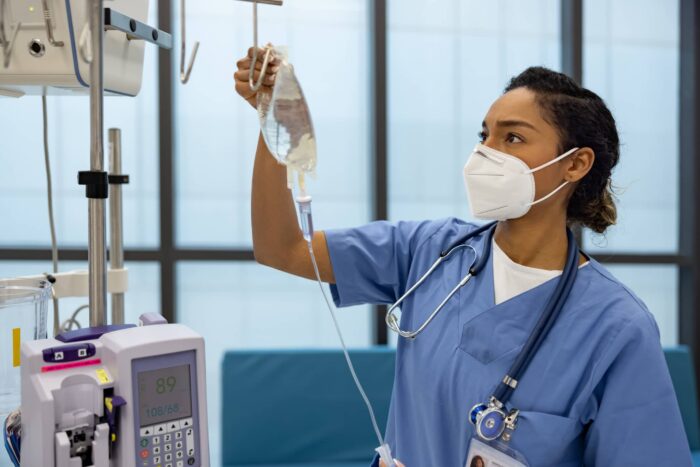
Healthcare workers are the backbone of our medical system, yet many of the roles that keep it running smoothly go unrecognized.
In the following paragraphs, we will shine a light on several behind-the-scenes jobs that profoundly impact patient health and safety every day.
The Supply of ER Nurses

The controlled chaos of a hospital emergency room is no place for the faint of heart. ER nurses undergo years of specialized training to thrive in this high-stakes environment. Their expertise allows them to rapidly assess situations, deliver urgent care, and communicate effectively across teams.
Whether coordinating trauma responses, stabilizing critical patients, monitoring intensive treatment, or comforting distressed families, their quick critical thinking and compassion saves lives daily.
High demand for quality emergency care means hospitals continually need talented ER nurses and doctors. Medical staffing agencies like Southland MD help to fill this need by recruiting specialized personnel for ER jobs.
These agencies vet candidates with emergency medicine skills, connect them with overwhelmed hospitals lacking sufficient staff, handle credentials and paperwork, and manage compensation – alleviating administrative barriers so clinicians can focus fully on patient care.
The Problem-Solving Skills of Biomedical Engineers
If you’ve ever relied on a ventilator, MRI machine or pacemaker, you have a biomedical engineer to thank. These technical experts creatively apply engineering principles to healthcare challenges.
They design, build, install, and maintain the complex medical equipment used for diagnosis, monitoring, and treatment.
With in-depth understanding of both biomechanics and technological innovation, biomedical engineers ensure clinical needs are both safely and effectively met.
Their relentless troubleshooting keeps fragile systems running, making patient care possible. They use science to find solutions where none seem to exist, making them quiet heroes improving clinical outcomes.
The Vigilance of Infection Control Officers
Hospitals house some of the most dangerous pathogens, yet stringent protocols minimize this risk.
Developing and enforcing effective infection prevention policies requires experts dedicated full-time to overseeing safety.
Infection control officers continually monitor risks, stay updated on emerging threats, analyze data, educate staff, and ensure proper containment measures. It is thanks to their diligent behind-the-scenes epidemiological work that healthcare facilities avoid outbreaks.
Their proactive risk management and transparent communication protect vulnerable patients.
The Problem-Solving Prowess of Hospital Administrators

It is difficult to feel grateful towards hospital managers navigating budgets. But their job coordinating complex systems affects healthcare delivery. Skilled administrators fluently translate clinical needs into resourcing reality.
Securing equipment funding, managing payroll systems, complying with regulations, containing costs, and overseeing big projects all facilitate smoother hospital operations. Patient experiences improve when fiscal planning and staff support work in harmony.
Their shrewd decision-making enables better treatment plans and easier patient pathways.
The Empathetic Alertness of Hospital Social Workers
Navigating healthcare complexity while unwell is deeply stressful. Hospital social workers provide supportive guidance to ease this burden.
Assessing patient and family psychosocial needs, they identify environmental or emotional barriers to healing. Connecting people with additional resources, education or counseling services empowers more engaged care.
Communicating sensitively across clinical teams helps customize treatment plans. And assisting vulnerable groups protects equality of care.
Their attentiveness and understanding, especially during crises like chronic diagnosis, addiction, abuse, grief, and loss, can profoundly affect mindsets, behaviors, and outcomes. This makes hospital social workers silent superheroes.
Conclusion

Many jobs keep our healthcare system running 24/7. Their less visible skills make it easy to overlook these vital team members’ influence. But their specialized expertise saves and improves lives in invaluable ways.
Recognizing their critical, if often unseen, contributions inspire the respect and appreciation healthcare workers deserve.
Next time you are at a hospital, take a moment to thank these quiet heroes who give so much of themselves to protect public health.














